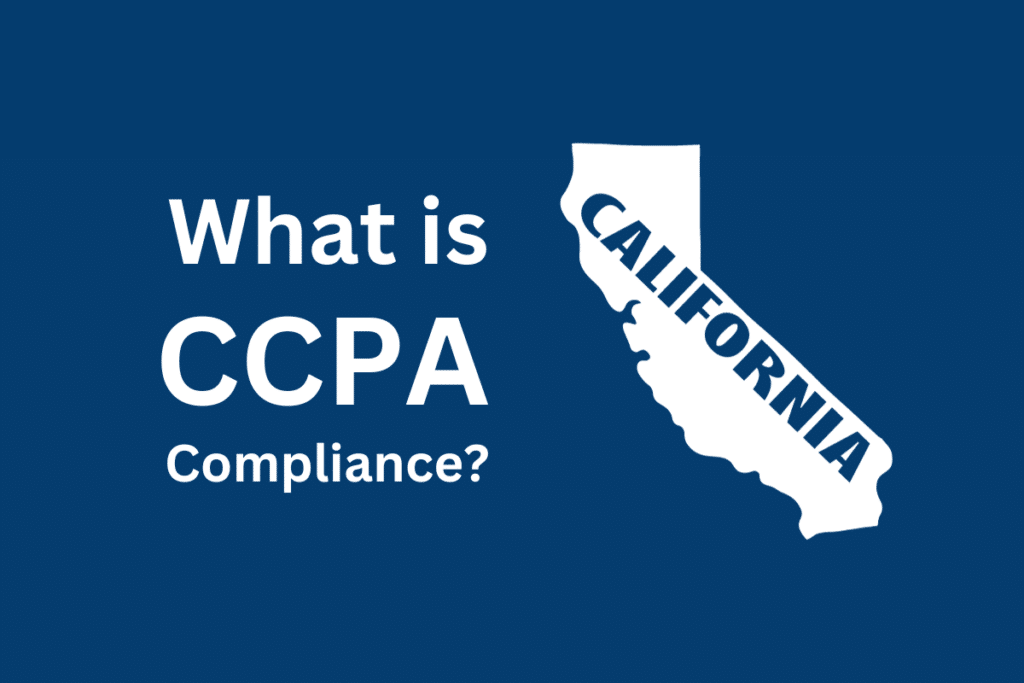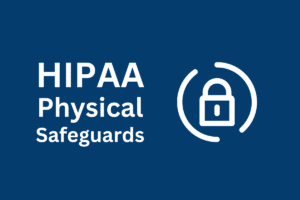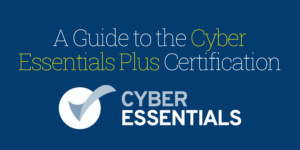Between 2005 and 2020, California saw an alarming 1,777 data breaches, exposing over 5.6 billion records. With such stark figures, the California Consumer Privacy Act (CCPA) emerged as a regulation and an essential shield for consumers.
For businesses, especially in digital healthcare, understanding CCPA isn’t just good practice; it’s necessary.
In this blog, you’ll get a clear picture of what CCPA compliance means, its requirements, potential penalties, and how to ensure you’re on the right side of the law.
What Is CCPA Compliance?
The California Consumer Privacy Act, known as CCPA, stands as a pillar for data privacy rights for those in California. Introduced to the public in June 2018 by Governor Jerry Brown and coming into effect on January 1, 2020, its main objectives are:
Transparency and Control
Companies need to inform consumers about how their data, be it search history or Social Security numbers, is gathered, stored, and utilized. This aims to give consumers a clear picture and more command over their personal data.
Third-Party Sharing
Consumers can now see if their data is being shared or sold to third parties. If they aren’t comfortable with how their information is used, they have the right to opt out.
Who Needs to Comply with CCPA?
CCPA specifically targets certain businesses, focusing primarily on for-profit entities involved in collecting and selling consumer data. To fall under the purview of the CCPA, a business must meet any one of the following criteria:
- Have annual gross revenue surpassing $25 million.
- Accumulate or deal with the personal details of over 50,000 California residents, households, or devices.
- Generate over 50% of their yearly revenue from selling California residents’ information.
Note: A business that meets any of these criteria is subject to the CCPA. This approach ensures that businesses of all sizes, from startups to large corporations, are responsible for handling consumer data.
However, here are some CCPA exemptions:
- Health providers and insurance companies are already under HIPAA’s wing.
- Financial institutions governed by Gramm-Leach-Bliley.
- Credit agencies like Equifax and TransUnion abide by the Fair Credit Reporting Act.
Why Does CCPA Exist?
Before the CCPA, companies had to ensure customer data protection, but there weren’t clear guidelines on how they should use or share this data. CCPA changed that, making personal data the consumer’s property. It covers a broad spectrum of data, from credit card details and postal addresses to more personal details like age, religious affiliation, and geolocation data.
CCPA Requirements Checklist
The California Consumer Privacy Act (CCPA) provides a comprehensive framework for businesses to respect and protect consumer privacy rights. This unified checklist combines the core provisions and compliance requirements, particularly focusing on the healthcare industry, which deals extensively with personal and sensitive data.
Transparency in Data Collection Practices
- Inform consumers about the categories of personal information collected and the purposes for which it will be used, at or before the point of data collection.
- Be clear about all types of data being collected, including IP addresses, voice recordings, or search history, and the business reasons behind such collection.
Consumer Rights and Business Obligations
- Right to Disclosure and Access: Consumers can request their personal data, which businesses must provide in a usable format, free of charge, within 45 days.
- Right to be Forgotten: Consumers can request the deletion of their personal data, with certain legal exceptions.
- Opt-out of Data Sales and Marketing: Provide a “Do Not Sell My Personal Information” link on the website’s homepage and options to decline future marketing data use.
- Right to Fair Treatment: Ensure equal service quality regardless of consumers’ decisions to exercise their CCPA rights.
Channels for Consumer Interaction
- Offer direct methods such as an email address or phone number for consumers to learn more about privacy practices and address CCPA-related queries.
- Establish clear channels for consumers to send access or deletion requests.
Data Security and Protection
- Implement and periodically evaluate reasonable security procedures to protect against risks like unauthorized access.
Periodic Updates to Privacy Policies
- Regularly review and update privacy policies to reflect changes in data collection, use, and sharing practices, ensuring alignment with CCPA regulations. This is especially crucial for businesses in the healthcare sector.
With this unified checklist, businesses can ensure they comply with the CCPA, addressing both the core provisions and the specific requirements for maintaining consumer trust and adherence to the law.
Action Plan for CCPA Compliance
Preparation:
- Know where you stand. Identify and categorize consumer personal data.
- Dive into the CCPA checklist and understand consumer rights.
- Conduct assessments to detect any security incidents or lapses.
- Spot and manage overlooked data, be it from email addresses or location history.
Implementation:
- Revise and publicize your online privacy policy.
- Develop efficient systems to address consumer requests.
- Modify data access controls and strengthen security measures.
- Upgrade pivotal systems and consider adopting compliance software.
Maintenance:
- Keep your privacy policy updated, reviewing it annually.
- Organize compliance training sessions to keep the team informed.
- Methodically delete data that’s no longer needed.
- Refine consumer request processes, covering everything from opt-out requests to verifiable requests.
With this plan, businesses can confidently navigate the CCPA landscape, ensuring they respect and uphold consumer privacy rights. Always consider seeking legal advice for intricate matters.
Penalties for Non-Compliance
When a company overlooks the CCPA requirements, they aren’t just risking their reputation; they’re also exposing themselves to significant financial consequences.
Regulatory fines and penalties
A simple unintentional oversight can cost a company $2,500 per instance. If it’s found that a company willingly ignored the CCPA’s stipulations, that amount increases to a staggering $7,500 for each violation. Interestingly, the CCPA offers a 30-day grace period. If a business can rectify its misstep within this timeframe after being notified, it might escape the fines. However, failure to do so resurrects those looming penalties.
Litigation risks and potential class-action lawsuits
Data breaches aren’t just about lost information; they come with their own set of legal complications. Consumers affected by such breaches, resulting from the company’s lack of reasonable security measures, have the right to pursue action. This could lead to statutory damages, varying between $100 and $750 for every affected consumer, per incident or actual damages.
While the CCPA intends to bolster consumer privacy rights, businesses must take it seriously to avoid hefty penalties and potential lawsuits.
How Do HIPAA and CCPA Work Together?
HIPAA and CCPA both protect personal data but with different rules. Companies following HIPAA may still need to comply with CCPA for non-health data, anonymized health data, and inferences from health data. Organizations and their partners must adhere to both sets of regulations.
Final Thoughts
Understanding the rules is just half the battle; implementing them is what counts. There’s more to the CCPA than just another law. It reflects digital privacy’s importance in protecting consumer data, and the responsibility of businesses to safeguard their information.





